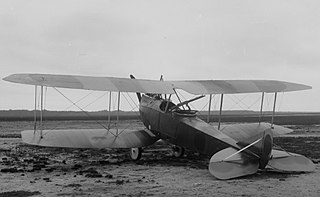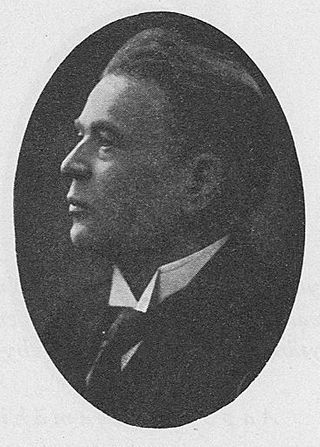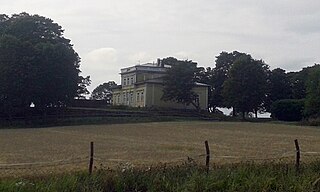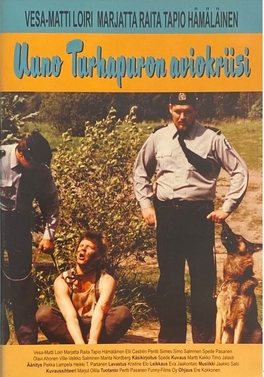| Cinema of Finland |
|---|
 |
| List of Finnish films |
Grand Duchy of Finland |
| before 1917 |
Independent Finland |
| 1917-1939 |
| 1940s |
| 1950s |
| 1960s |
| 1970s |
| 1980s |
| 1990s |
| 2000s |
| 2010s |
| 2020s |
A list of films produced in Finland ordered by year of release. For an alphabetical list of Finnish films see Category:Finnish films
The numbers in the Notes column refer to the numbering used by Suomen kansallisfilmografia. These numbers are given to all full-length films which have been shown in public theaters as a headlining or co-headlining film. Suomen kansallisfilmografia uses the minimum length of 37 minutes to qualify for a film to be listed, however the earliest films may be shorter than this (as 37 minutes was not even technically possible).
| Title | Director | Cast | Genre | Notes | ||
|---|---|---|---|---|---|---|
| 1907 | ||||||
| Salaviinanpolttajat | Louis Sparre, Teuvo Puro | Teppo Raikas, Eero Kilpi, Teuvo Puro | Comedy, Crime | 1907/1 First Finnish fictional film, All copies believed to be destroyed. | ||
| 1908 | ||||||
| Vasikan häntä | ? | Riika Raunio-Pakarinen, Waldemar Raunio | Comedy | 1908/1 All copies believed to be destroyed. | ||
| 1909 No known Finnish films produced this year. | ||||||
| 1910 No known Finnish films produced this year. | ||||||
| 1911 No known Finnish films produced this year. | ||||||
| 1912 | ||||||
| Margaretaa ajetaan takaa | K.E. Ståhlberg | Herra Bengelsdorf, Bror Berger | Comedy | 1912/1 All copies believed to be destroyed | ||
| Rusthollari Pettersonin Helsinginmatka | Bror Berger | Bror Berger, a pig | Comedy | 1912/2 First film to go through Finnish film board approval inspection (established in 1911), All copies believed to be destroyed | ||
| 1913 | ||||||
| Sylvi | Teuvo Puro | Teuvo Puro, Aili Rosvall-Somersalmi, Teppo Raikas | Drama | 1913/1 Oldest Finnish film with known existing film fragments | ||
| Verettömät | Kaarle Halme | Oskar Krabbe, Hilma Rantanen, Mandi Terho | Drama | 1913/2 All copies believed to be destroyed | ||
| Nuori luotsi | Kaarle Halme | Konrad Tallroth, Hilma Rantanen, John Precht | Drama | 1913/3 All copies believed to be destroyed | ||
| Kosto on suloista | ? | ? | Comedy, Crime | 1913/4 All copies believed to be destroyed | ||
| Kun onni pettää | Konrad Tallroth | Axel Precht, Sigrid Precht, Konrad Tallroth | Drama | 1913/5 All copies believed to be destroyed | ||
| 1914 | ||||||
| Se kolmas | ? | Birger Pohjanheimo, Hilarius Pohjanheimo, Adolf Pohjanheimo | Romantic drama | 1914/1 All copies believed to be destroyed | ||
| Pirteä ja kadonnut kori | ? | Birger Pohjanheimo, William Räisänen, Hilda Räisänen | Comedy | 1914/2 All copies believed to be destroyed | ||
| Salainen perintömääräys | ? | Hilarius Pohjanheimo, Helinä Svensson, William Rölling, Birger Pohjanheimo | Crime | 1914/3 All copies believed to be destroyed | ||
| Väärennetty osoite | ? | ? | Crime | 1914/4 All copies believed to be destroyed | ||
| Nainen, jonkas minulle annoit | ? | ? | Romantic drama | 1914/5 All copies believed to be destroyed | ||
| Tuiskusen kuherruskuukausi | ? | ? | Romantic drama | 1914/6 All copies believed to be destroyed | ||
| Kalle Pettersson | ? | ? | Crime | 1914/7 All copies believed to be destroyed | ||
| Käpäsen rakkausseikkailu | ? | ? | Romantic comedy | 1914/8 All copies believed to be destroyed | ||
| Vieraalla maaperällä | Kaarle Halme | Tyyne Halme, rva Enroth, Kaarle Halme | Drama | 1914/9 All copies believed to be destroyed | ||
| Kaksi sankaria | ? | ? | Romantic comedy | 1914/10 All copies believed to be destroyed | ||
| 1915 | ||||||
| Kesä | Kaarle Halme | Hilma Rantanen, Mandi Terho, Oskar Krabbe, Sigrid Precht | Romantic drama | 1915/1 All copies believed to be destroyed | ||
| Rikosten runtelema | ? | Eino Salmela, Helinä Svensson | Drama | 1915/2 All copies believed to be destroyed | ||
| "Peski", "Lappa" ja poliisit | Bror Berger | Bror Berger, Harald Sandberg, Georg Grönroos | Comedy | 1915/3 All copies believed to be destroyed | ||
| 1916 | ||||||
| Katoavia timantteja | Bror Berger | Arvid Hammarlund, Inga Saar, Harald Sandberg, Bror Berger | Crime | 1916/1 First Finnish film to have a premiere with several screens (2 theaters), All copies believed to be destroyed | ||
| Tuhlaajapoika | Sven Bergvall | Svea Peters, Hjalmar Peters, Märta Hallström | Drama | 1916/2 All copies believed to be destroyed | ||
| Eräs elämän murhenäytelmä | Konrad Tallroth | Mia Backman, Oskar Tengström, Konrad Tallroth | Drama | 1916/3 All copies believed to be destroyed | ||


















